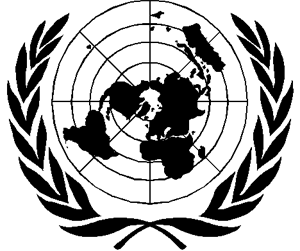Alternative Report to the United Nations Committee against Torture

Today, in Geneva, Georgian delegation will present the alternative report about Human Rights Violation in Georgia 2005 to the United Nations Committee against Torture. The report was prepared by the ‘Human Rights Information and Documentation Centre’ (HRIDC), ‘Georgian Young Lawyers Association’ (GYLA), ‘Public Health and Medicine Development Fund of Georgia’ (PHDFG) and ‘World Organization against Torture’ (OMCT).
After the “Rose Revolution” legislative and constitutional changes, which challenge a republican-style balance of power, are of particular concern. These measures include constitutional changes that enhance executive authority at the expense of the legislative and judicial branches of government.
The changes made by the Parliament on 6 February 2004 strengthened presidential powers by allowing the President to dissolve Parliament. Another amendment empowers the President to appoint and dismiss judges, thereby increasing the President's influence over a judiciary that already suffers from a lack of independence. The judiciary has finally become simply the government’s “appendix”. Pressure against independent minded judges is carried out and few judges dare to speak out openly, as those who do are often punished.
Impunity among law enforcement officials is widespread and no serious action has been taken to reverse this trend. Torture and ill-treatment of detainees remains an unresolved problem. Georgia carries out the prevalent practice of arbitrary detentions. Law-enforcement officials often detain people without court warrants, frequently violating the law on the maximum age of detention, followed by procedural violations such as failure to bring detainees personally before a judge to determine the legal nature of detention, failure to notify family members of detainees and restricted access to lawyers. It should be mentioned as well that since the revolution two people have died by torture in Georgia. This report highlights the widespread torture of detainees by the police.
After the Rose Revolution, the government declared the fight against crime and perpetrators as its top priority. Thus, as the penitentiary was reformed and new policemen were selected, so called “demonstrative detentions” were held in Georgia.
The so-called special operations held by law-enforcement bodies of Georgia in most cases are characterized by excessive severity and end up with liquidation/assassination of those persons who are supposed to be detained. According to the practice in force, it can be assumed that state killings are taking place under the cover of “special operations”. Arms are used not in exceptional cases as a means of last resort but always as a rule. According to the statistics of the Ministry of Interior, in 2005 15 criminals were liquidated on the spot and 1 was injured.
Particular concern is voiced towards the statements of President Mikheil Saakashvili and other officials on law enforcement as they are directly encouraged to use the unlawful and excessive actions. We consider that these and other high-level statements on law enforcement encourage lower officials to violate basic rights which may lead to an increase in the already existent and excessive use of violence by the police.
I would like to mention as well Chechen refugees. A problem long faced by the refugees is ‘extradition’ - although at times ‘kidnapping’ would be a more appropriate term- back to Russia, where they face possible violations of their rights.
The Georgian authorities are not taking adequate steps to protect the rights of the Chechens, particularly in the Pankisi Gorge area. The Human Rights Information and Documentation Centre calls on the Georgian government to fulfil its obligations under the Convention against Torture and refrain from permitting the extradition of people to countries where their human rights are likely to be violated.
See the report here:
http://www.humanrights.ge/eng/files/Georgia_report_v71.pdf
"Human Rights Information and Documentation Centre" will also present the report about "Chechen Torture in Georgia" in Geneva. The report was prepared by the centre.
See the report here:
http://www.humanrights.ge/eng/files/Chechen%20Torture%20in%20Georgia%20-%20JZ%2011-04-06.pdf



